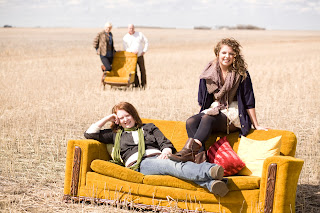
If we could find a way to make poverty and despair profitable, I wonder if it would exist.
Would there be enough resources to stop the cycle of abuse and violence that is inherited from one generation to the next.
Could it be in vogue to help those who can`t help themselves if it could be profitable.
The other day, I sat across the table from a man who was telling me about a vision to save people`s lives. He is the founder of the Adult Learning Centre which works to save people from falling through the cracks of our society, and to give them the tools to live in their potential.
I am inspired by his caring and understanding for those who need help. Other organizations in our city also care enough to help, like Family Services Regina. But in the people helping business, resources are tight.
Poverty alone is not the issue. If it were, the solution would be to acquire the skills and knowledge to find meaningful employment.
The people who suffer may or may not be impoverished, but most importantly, they are without hope. They are the forgotten and the invisible.
Through the course of living, learning, listening and writing, I have come to the conclusion that we are all fragile human beings.
We may not feel the edge, or see the edge, but we really do not know where the edge is, for any of us. This lesson has been brought home to me by many of my `teachers.`
Don, a `street person` by his own definition, showed me the back alleys, hotels and dank bars of our fair city, as he explained the day to day life of the people who survive on the streets.
Like many others, Don was afflicted with many problems, from drug abuse and alcoholism to sexual abuse, all of which he attributed to life on the streets. He told me that his parents tried to help him, but the more they tried to help him, the faster he would run and the more damage he would do. Don told me that he no longer knew where his family was, and he understood. ``I wore them out. I know that.``
I also met young women who fell into prostitution to feed other habits. One young woman, who was dressed in more expensive clothes that what I could afford at the time, told me she was the daughter of a policeman, and she wanted to get clean and live a normal life.
I met a man outside of a soup kitchen who had lived a happy life as a nurse until his wife died. I asked him, what happened. He said, ``I fell into a bottle and I never got out. I don`t really talk to my kids anymore.``
I met a woman whose teenage daughter was being abused by a john. Despite her efforts, she could not stop her daughter from leaving the house night after night. He went to jail for a time, but how much time is appropriate for a person who steals another person`s dignity and potential worth, I wondered.
I was sad. I thought, what if that was my dad, or my sister, brother, or daughter. Would I let go of them. I hope not.
But the fact is, many people do not have the resources to hang on, and many people have lost their humanity. Many people go to bed hungry, cold and afraid. Many people live within cycles of abuse in their families, and try to keep a job. Many people are just hanging on. In fact, I would go so far as to say that there are so many people living like this, that it is a community, just like the one that Don introduced me to.
Changing a life that seems lost is not hopeless. It is difficult for the person to change. But it also seems to be difficult for society to recognize the problem. It is hard to look into the eyes of person whose basic human needs are not being met on a daily basis, so we look away. We are afraid that we will see ourselves.
I cannot count myself among the despairing. I have lived a rich life, even if I did not have enough money. I have parents who did not let go. I was raised to believe that the way ahead was education. I lived on student loans and the wages of a school bus driver for 5 years to earn a degree in Journalism, and focused on the light at the end of the tunnel: the ability to make enough money to have a nice house and life for my family, pay my bills and pay taxes.
The difference between me and Don is that I was lucky. I was born to parents who had the resources to make sure we had a home, the expectation that we would go to school, and the opportunity to participate in sports and other activities that help to create character and a sense of personal accomplishment. I knew how to learn. I knew how to keep a schedule and stay on a plan. I knew how to set a goal and commit to it. I stayed away from the edge of drug abuse and other forms of abuse.

The protests that have broken out all over the world seem to be creeping up to the edge of this problem, but they are not helping the plight of the woman whose daughter runs out to meet her john every night, or the teenager shooting up in the back alley.
They are not helping the young girl who got lost in the streets. They are are not helping the person who has never known what it is to live a life that is safe. This week, a person (who was also described as a protester) overdosed in Vancouver on heroin. I fear the protests are making it worse for the truly forgotten.
What we need is to be find a way to make poverty and despair profitable.

























